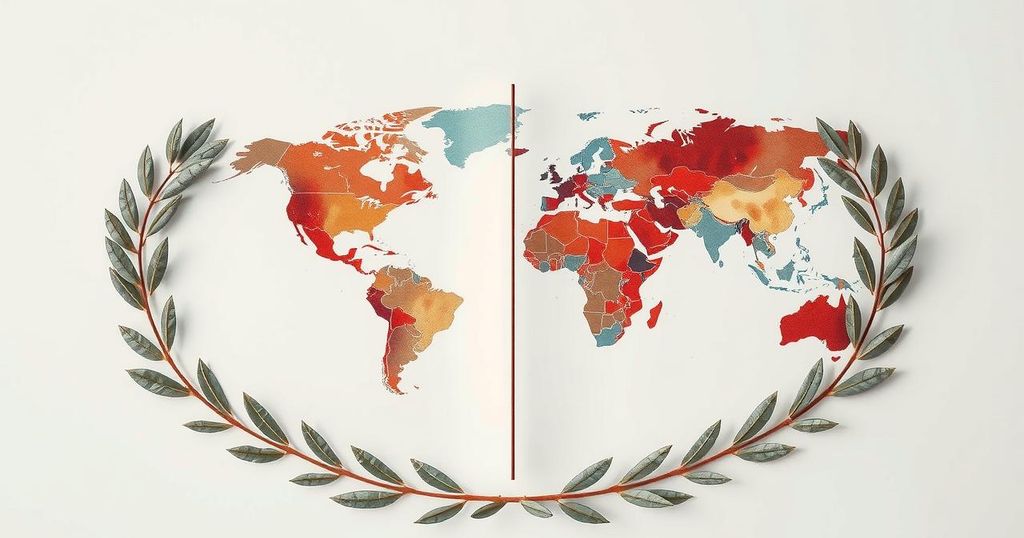Tensions escalate as South African President Ramaphosa blames the Rwanda-supported M23 rebel group for the deaths of South African peacekeepers in the DRC. Rwanda’s President Kagame responds by accusing South Africa of aggressive actions and mischaracterizing its military presence. With 13 South African soldiers lost, historical diplomatic tensions resurface, prompting questions about military involvement and the way forward in addressing the conflict in the DRC.
Tensions between South Africa and Rwanda escalated following accusations from South African President Cyril Ramaphosa, claiming the Rwanda-supported M23 rebel group was responsible for the deaths of South African peacekeepers in the Democratic Republic of Congo (DRC). Amidst the M23’s advances in Goma, South Africa issued a warning, deeming further assaults on its troops a “declaration of war.” Rwandan President Paul Kagame responded, dismissing South African claims and declaring them part of a militia engaged in offensive actions against the DRC’s government.
Recent clashes have resulted in the deaths of 13 South African soldiers, exacerbating an already tumultuous relationship between the two nations, historically fraught with diplomatic issues. Previous tensions included the expulsion of diplomats by both countries in 2014 and a recent escalation tied to South African military involvement in the DRC peacekeeping efforts. South Africa’s troops, mainly forming the Southern African Development Community’s (SADC) intervention force, were deployed in December 2023 to curtail armed groups like M23.
The diplomatic rift intensified following a post on social media, where Ramaphosa confirmed discussions with Kagame about the urgent need for a ceasefire and peace negotiations. Despite Ramaphosa’s reassurances that South African forces were not a threat to Rwanda, he emphasized the M23’s lethal actions against his soldiers, further straining relations.
The relationship between South Africa and Rwanda has been historically complex. South Africa has actively engaged in peacekeeping in the DRC since the late 1990s after the end of apartheid, participating in UN missions and regional peace efforts due to the country’s strategic and economic interests in the conflict-ridden region, rich in minerals. The recent resurgence of the M23 rebel group has renewed tensions as it exploits the precarious military landscape, prompting South African military involvement under SADC’s mandate. Rwanda has consistently been accused of supporting rebel factions in the DRC, including M23, a claim it vehemently denies. The geopolitical implications of this conflict extend beyond military engagement, as it intertwines with economic considerations due to the DRC’s wealth in resources that are crucial for both nations. The backdrop of this conflict is marked by past diplomatic exchanges that have shaped the current mistrust between the two countries.
In conclusion, the ongoing conflict in the DRC exemplifies the fragile relationship between South Africa and Rwanda, compounded by recent military casualties and conflicting narratives regarding the involvement of each country. As tensions mount, both nations face critical decisions regarding their military and diplomatic strategies in a region marked by instability. Ultimately, the resolution of these conflicts hinges on effective communication and collaboration among the countries involved, alongside a recognition of the humanitarian implications of their military engagement.
Original Source: www.bbc.co.uk






